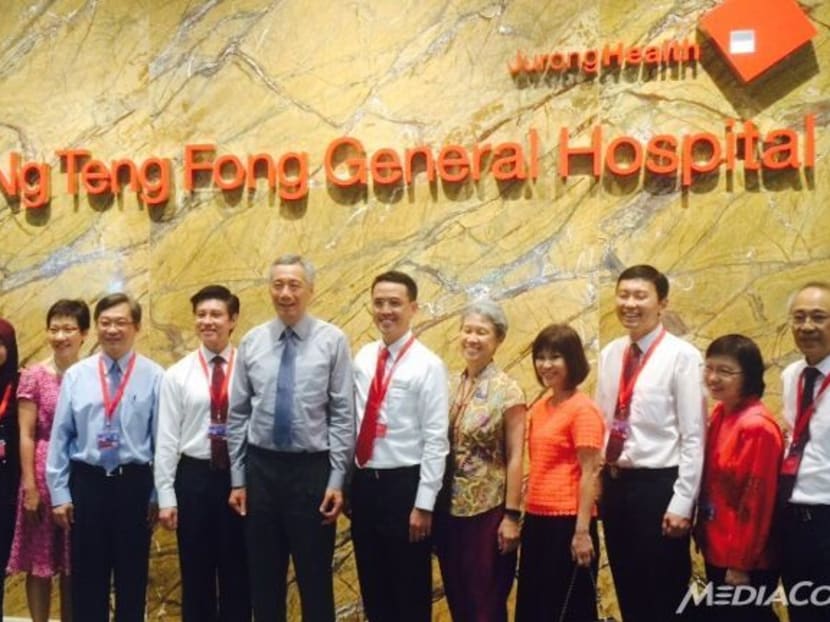As healthcare needs grow, S'pore must continue to get the system right: PM Lee
SINGAPORE — While the Republic has a healthcare system that ranks among the best in the world, work must continue to improve on it as the population ages and needs grow, Prime Minister Lee Hsien Loong said today (Oct 10).

PM Lee at the official opening of Ng Teng Fong General Hospital and Jurong Community Hospital. Photo: Channel NewsAsia
SINGAPORE — While the Republic has a healthcare system that ranks among the best in the world, work must continue to improve on it as the population ages and needs grow, Prime Minister Lee Hsien Loong said today (Oct 10).
Among other things, healthcare facilities have to be steadily expanded and upgraded. The country must also ensure that it continues "getting the system right" by making sure healthcare is delivered and paid for properly, in order to prevent overconsumption.
"We have been able to do that so far but it's not easy, it depends on our political support, because ultimately, Singaporeans must be willing to support the system," said Mr Lee, who was speaking at the official opening of Ng Teng Fong General Hospital (NTFGH) and Jurong Community Hospital (JCH).
Mr Lee noted that despite spending less on healthcare than other countries, Singapore has better health outcomes in terms of infant mortality, longevity, medical coverage and waiting times. This depends on not just having more doctors and hospitals but also on getting the system right, he said. "This will always be hard because the more support we give, the less patients have to worry about healthcare costs, the greater the incentive to overuse healthcare services," he added.
On the growing healthcare needs, Mr Lee said that more hospitals and higher capacities are needed due to increasing patient numbers. "The numbers have been rising mainly because our population has been... ageing very rapidly," said Mr Lee.
Mr Lee said the two new hospitals will add much needed capacity to Singapore's healthcare system, with the hospitals an important part of the Healthcare 2020 masterplan. Since operations began on Jun 30, the hospitals have been operating 500 acute and 175 community hospital beds. The numbers will be increased to 700 and 400 respectively when the hospitals are fully opened.
The Government has been steadily expanding and building hospitals since 2010. More hospitals will also be up and running in the coming years, including Yishun Community Hospital by the end of this year and Sengkang General and Community Hospital in 2018. Outram Community Hospital is also set to open in 2020, and Woodlands General and Community Hospital in 2022.
Mr Lee also spoke about the patient-centric design of the NTFGH and JCH, which operate together as a single integrated development. For example, the wards at NTFGH are fan-shaped, "with lots of natural light and greenery outside". In JCH, a three-room Housing and Development Board flat mock-up has been installed to help patients ease back into their home environment while recuperating.
On the overall healthcare plans for Jurong, Mr Lee said that primary care facilities have been built up and there will be a new polyclinic by 2017. More nursing homes are also being built and eldercare centers expanded. "We are putting all the pieces together in Jurong," said Mr Lee. He added that similar plans are being rolled out across the island to allow a patient to get "appropriate treatment in the right place", and with a system that "delivers better care, in a cost-effective way" as a whole.






